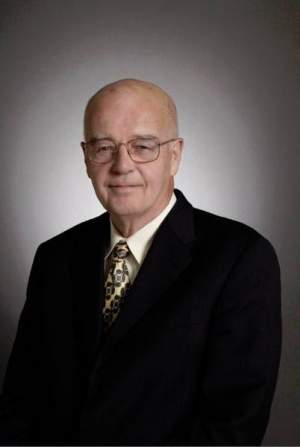
Top Trial Attorney James Brosnahan Reflects on 50 Years of Law Practice
San Francisco, CA—One of the top 30 trial lawyers in the United States, James Brosnahan first realized he wanted to practice criminal law before he even went to law school.
Once he graduated, he was plunged directly into the deep end. “My very first trial was a first degree murder case,” Brosnahan recalled in a recent interview with laws-info.com. “Of course, at that time, it was a very big case for me. It was in the Pima reservation, south of Phoenix.”
(More on News at isLAWS.com
Brosnahan has been practicing law for over 50 years, most recently at Morrison & Foerster, recently named 2013 Law Firm of the Year by Chambers Global. In half a century of practicing law, the situation has changed substantially for criminal defendants.
“Today, it is extremely difficult for criminal defense lawyers to practice law, because of the federal sentencing guidelines,” he explains. “They basically convert humans into mathematical statistics.”
These sentencing guidelines have led to an increase in plea agreements. Making the decision to plea bargain or go to trial is rarely an easy one, according to Brosnahan. “Before going to trial or taking a plea deal, I always analyze the future of my client. What is this plea deal going to do for my client's future? What is it that I can do to benefit my client's future? And—most importantly—what does the client want to do?”
After representing clients in a number of high profile cases, Brosnahan has his pick of cases today, specializing in over 25 areas of practice. “I choose cases if there is an interesting issue in the case,” he says. “What really gets me going is if the government has overreached, and they oftentimes do. I like to resist that, and find out how to do things within the rules, because they're hardly ever what the government thinks they are. Many times, the defendant is not guilty of what they were charged with.”
Brosnahan believes that it's hard to overestimate the role of individual jurors and jury selection during trial. “I don't think I knew enough human psychology when I first started, and I did not comprehend the real dynamics of jury deliberations,” he says. “I thought early on that the outcome of the case was all based on my performance, but it turned out that the jury plays a much bigger role than I thought.”
Taking high profile, difficult cases, including for defendants like John Walker Lindh, has led to media attention—and the press can be tough to deal with. “What I have learned from working on these high-profiled cases is to not let the spotlight change or influence the integrity of my work.” While it can be tempting to talk to the press, Brosnahan cautions younger attorneys: “The only audience that matters is the judge and the jury, so a lot of attorneys have to be extremely careful not to let the media bully them around.”
When getting started in criminal defense, Brosnahan says that it's critical to know how you appear and sound in court. “Practice your delivery as much as possible. Public speaking is essential in this practice, so you must find as many opportunities to speak to a large audience as possible. It also doesn't hurt to read a few biographies of notable criminal defense attorneys to have a better understanding of the practice. What has worked for me—and what I highly recommend—is to talk to criminal defense attorneys who have the time and patience to answer questions.”
Morrison & Foerster strives to be an extremely well-balanced law firm, providing a broad range of services. With more than 1,000 lawyers in 16 offices in key technology and financial centers in the United States, Europe and Asia, their clients include some of the largest financial institutions, investment banks, and Fortune 100, technology and life science companies. To learn more about James Brosnahan and his practice, click here.
Comments
Must Read
 A Easy Overview to Manslaughter
A Easy Overview to ManslaughterManslaughter charges cover any criminal killings which are not considered murder.
 A Full Guide to Actus Reus
A Full Guide to Actus ReusIn order for an individual to be convicted of a crime, many different elements of the crime must be satisfied.
 A Full Overview of Burglary
A Full Overview of BurglaryBurglary is a crime in which the perpetrator enters a structure without permission for the purposes of committing another crime.
 A General Guide to Criminal Laws
A General Guide to Criminal LawsThere are major aspects of a crime that must be satisfied in order for an individual to be convicted of a crime.
 A History of Felonies
A History of FeloniesEven though the world's first documented codes of laws, the Code of Ur-Nammu, surfaced as early as 2100 B.
 A Look at Minimum Sentences
A Look at Minimum SentencesIn the 1980s, the United States Federal Government acknowledged the increasing rate of crime and understood the necessity of addressing the high rates of criminal activity throughout the nation.


